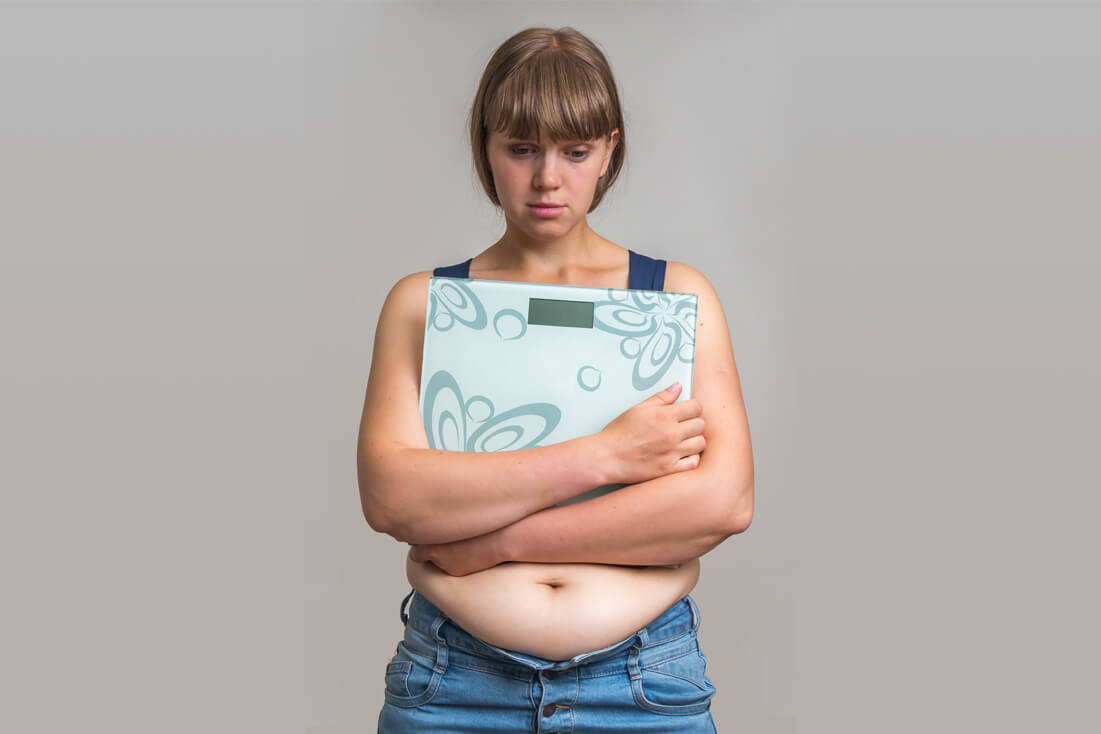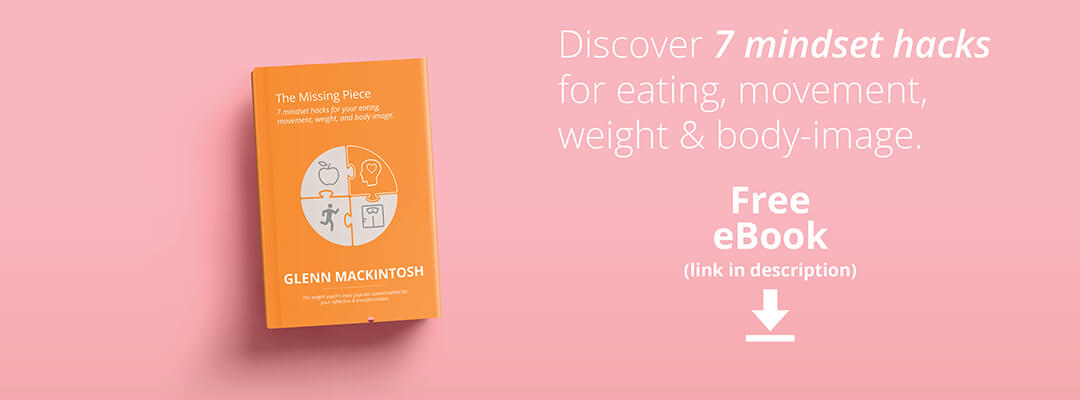
I recently wrote to you about the psychological impact of your body image and it was comforting to hear all of your responses! And while many of you resonated with the impact body worries were having on your emotional wellbeing, self-esteem, and life in general – and were heartened to hear that things can change – there were also a lot of questions about how body image relates specifically to weight.
One of the most common questions I get in session is some version of:
“If I am so upset by my looks, why aren’t I motivated enough to change?”
While it intuitively makes sense that dissatisfaction would make you want to change, what gets people in my door is not necessarily what gets them out the other side successfully.
Looking at research evidence, we see clearly that body image issues are barriers to effective weight management. Specifically, negative body image is associated with:
- A higher bodyweight*
- Unhelpful and harmful dieting practices**
- Overeating***
- Avoiding exercise****
- Less weight loss on a weight loss program*****
- Weight regain following weight loss******
- Weight yo-yoing over time *******
So if any of the above challenges have applied to you in the past it’s worth asking the question – is it possible my body worries have harmed my eating, physical activity, and weight management more than they helped?
In my sessions, workshops, and online programs we always make time to talk about what I call Body Love. While this may sound corny, a bit “airy fairy”, or downright unachievable, Body Love is key to a healthy relationship with food, movement, and your weight. While I could talk about each of the components for hours (and often do!), Body Love is a practical model that has three main aspects:
-
Acceptance
-
Trust, &
-
Care
Let’s take a second to daydream…
For a moment imagine what would happen if you treated your own body with acceptance, trust, and care (your mind may be telling you this is impossible, but suspend the judgments for a second and go with it)… How would your thoughts change and how would you feel? Would you notice any difference in your eating and physical activity habits? What would happen to your relationships with others and outlook on life in general?
If you found you would be better off taking a loving approach to your body, the next time you think about losing weight in order to accept yourself, you may question whether you want to try starting the other way around…
Between now and when I next write you, I want to you experiment with the idea of body love by treating your body with acceptance, trust, or care once a day. Start small and just have a play with this idea in a way that is right for you!
CLICK HERE TO READ THE NEXT ARTICLE
I’ll leave you with a passage from one of my favourite books:
“When we love something, it is valuable to us, and when something is of value to us we want to spend time with it, time enjoying it, and time taking care of it. Observe a teenager in love with his car and note the time he will spend admiring it, polishing it, repairing it, tuning it. Or an older person with a beloved rose garden, and the time spent pruning and mulching and fertilizing and studying it.”
M. Scott Peck, MD, The road less travelled, P22.
Imagine if you took the road less travelled and chose to love your body healthy…
I created this blog for people just like you.
If you found it valuable, please help me share it with them!
Want to improve your body image and learn to take care of yourself from a place of love?
Find out about our online program Love Your Body Healthy!
* Darby, A., Hay, P., Mond, J., Rodgers, B., & Owen, C. (2007) Disordered eating behaviours and cognitions in young women with obesity: Relationship with psychological status. International Journal of Obesity, 31, 876-882.
**Kong, F., Zhang, Y., & You, Z. (2013) Body dissatisfaction and restrained eating: Mediating effects of self-esteem. Social Behaviour and Personality, 41 (7), 1165-1170.
***Major, B., Hunger, JM., Bunyan, & Miller, CT. (2014) The ironic effects of weight stigma. Journal of Experiential and Social Psychology, 51, 74-80.
****Vartanian, L. R., & Novak, S. A. (2011). Internalised societal attitudes moderate the impact of weight stigma on avoidance of exercise. Obesity, 19, 757 – 762.
*****Teixeira, P. J., Going, S.B., & Houtkeeper, L. B., et. al. (2002) Weight loss readiness in middle-aged women: Psychosocial predictors of success for behavioural weight reduction. Journal of Behavoural Medicine, 25 (6), 499-523.
******Byrne, S., Cooper, Z., & Fairburn, C. (2003) Weight maintenance and relapse in obesity: A qualitative study. International Journal of Obesity, 27, 955-962.
*******Thomas, C. (1991) Stable vs unstable weight history, body image and weight concern in women of average body weight. Psychological reports, 68 (2) 491-499.






